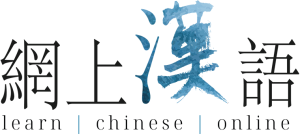Grammar
父母对孩子的教育
Fùmǔ duì háizi de jiàoyù
Parents' education towards their children
教育孩子要使用正确的方法。首先,不要用“懒”“笨”“粗心”这种词批评孩子,这样很容易让他们相信自己就是那样的,于是限制了他们正常的发展。其次,即使是出于教育的目的,也千万不能骗孩子,因为儿童缺少判断能力,看到父母骗人,他们也会学着说假话。因此,在孩子小的时候,父母要帮他们养成好的生活、学习习惯。
Jiàoyù háizi yào shǐyòng zhèngquè de fāngfǎ. Shǒuxiān, bú yào yòng “lǎn” “bèn” “cūxīn” zhè zhǒng cí pīpíng háizi, zhèyàng hěn róngyì ràng tāmen xiāngxìn zìjǐ jiùshì nàyàng de, yúshì xiànzhì le tāmen zhèngcháng de fāzhǎn. Qícì, jíshǐ shì chūyú jiàoyù de mùdì, yě qiānwàn bù néng piàn háizi, yīnwèi értóng quēshǎo pànduàn nénglì, kàndào fùmǔ piàn rén, tāmen yě huì xuézhe shuō jiǎhuà. Yīncǐ, zài háizi xiǎo de shíhòu, fùmǔ yào bāng tāmen yǎngchéng hǎo de shēnghuó, xuéxí xíguàn.
To educate a child you have to use the right method. First of all, do not criticize children with words like "lazy", "stupid" and "heedless", because it would be easy for them to believe that they are like that, limiting their normal development. Second, even for educational purposes, children should not be misled because they lack judgment and when they see their parents deceiving others, they will learn to tell lies. Therefore, when children are young, parents must help them develop good habits of life and study.
- 使用 is more formal or literary than 用, but the meaning and usage is the same.
- 让 in the sentence 让他们相信 expresses the causative: "to make the children believe that".
- Note the pronunciation of 的 de in the word 目的 mùdì. With the pronunciation dì, 的 has the meaning of "objective".
- We studied the character 假 jià "vacation" at level 4 lesson 3. With the third tone 假 jiǎ means "false / to be false". So 假话 jiǎhuà "false words / lies".
很多时候孩子发脾气是为了得到一些好处,父母不能因为孩子发脾气就给他好处。如果我们不重视这个问题,他就容易养成发脾气的坏习惯。 习惯不是一天之内养成的 ,因此养成一个好习惯需要坚持 ,而改掉一个坏习惯也需要坚持。
Hěn duō shíhòu háizi fā píqì shì wèile dédào yī xiē hǎochu, fùmǔ bù néng yīnwèi háizi fā píqì jiù gěi tā hǎochu. Rúguǒ wǒmen bù zhòngshì zhè gè wèntí, tā jiù róngyì yǎngchéng fā píqì de huài xíguàn. Xíguàn bú shì yī tiān zhī nèi yǎngchéng de, yīncǐ yǎngchéng yī gè hǎo xíguàn xūyào jiānchí, ér gǎidiào yī gè huài xíguàn yě xūyào jiānchí.
Often, when a child gets angry, it is to get something. Parents should not give him because he gets angry. If we do not pay attention to this problem, it will easily develop bad habits of anger. Habits do not develop in a day, so you have to persevere in the development of good habits and the elimination of bad habits.
- 发脾气 means more "throwing anger" with all the outward signs while 生气 shēngqì means a more contained anger.
- 得到一些好处 "get something", literally "get some benefits".
- 一天之内 "in a day". To express a limited amount of time we use the structure duration + 之内.
- 改掉 composed of 改 "to change" and 掉 "to fall" literally means "to eliminate through change".
教育不同性格的孩子要使用不同的办法:对那些活泼的孩子要给他们一些限制;对那些害羞的孩子要经常鼓励他们说出自己的看法,当他们这样做了以后,要表扬他们,这样才能让每一个孩子都健康地发展。
Jiàoyù bùtóng xìnggé de háizi yào shǐyòng bùtóng de bànfǎ: duì nà xiē huópo de háizi yào gěi tāmen yī xiē xiànzhì; duì nà xiē hàixiū de háizi yào jīngcháng gǔlì tāmen shuō chū zìjǐ de kànfǎ, dāng tāmen zhèyàng zuò le yǐhòu, yào biǎoyáng tāmen, zhèyàng cái néng ràng měi yī gè háizi dōu jiànkāng de fāzhǎn.
To educate children of different personalities, you have to use different methods: you have to put limits on those who are active and often encourage those who are shy to express their opinions. When they do so, they must be congratulated. It is only in this way that we will let each child develop healthily.
- 当 "when" works here with 以后 "after". It may seem strange, but the idea is to insist on the moment when the action is executed and after that, something happens.
- In 每一个孩子, "one" 一 is not necessary (每个孩子) but here he reinforces the meaning of individuality.
- 发展 is not seen here from a professional point of view, but it is about the overall development of the child.
最近很多人在看的电视剧《血色浪漫》,由著名演员孙俪主演,其实她小时候很普通,一说话就脸红,回答老师问题的时候声音也很小,是父母的鼓励给了她信心,后来,她果然成为一位优秀的演员。
Zuìjìn hěn duō rén zài kàn de diànshìjù “Xuèsè làngmàn”, yóu zhùmíng yǎnyuán Sūn Lì zhǔyǎn, qíshí tā xiǎoshíhòu hěn pǔtōng, yī shuōhuà jiù liǎn hóng, huídá lǎoshī wèntí de shíhòu shēngyīn yě hěn xiǎo, shì fùmǔ de gǔlì gěi le tā xìnxīn, hòulái, tā guǒrán chéngwéi yī wèi yōuxiù de yǎnyuán.
Recently, many people watched the television series "The Blood Color Romance" featuring the famous actress Sun Li. In reality, she was very ordinary when she was a child. She blushed as soon as somebody spoke to her. She answered with a very small voice to the questions of her teachers. It was the encouragement of his parents that gave him self-confidence. Later, she really became an excellent actress.
- 主 "essential" + 演 "play (a role)" ⟶ "play the lead role".
- 脸红 literally "the face blushes", indicates the reaction of shyness.
